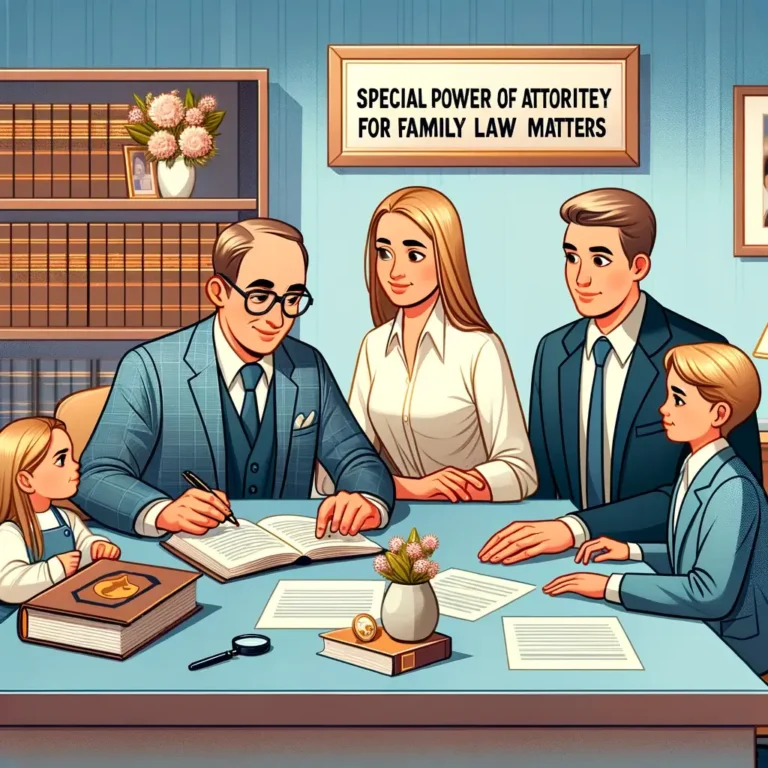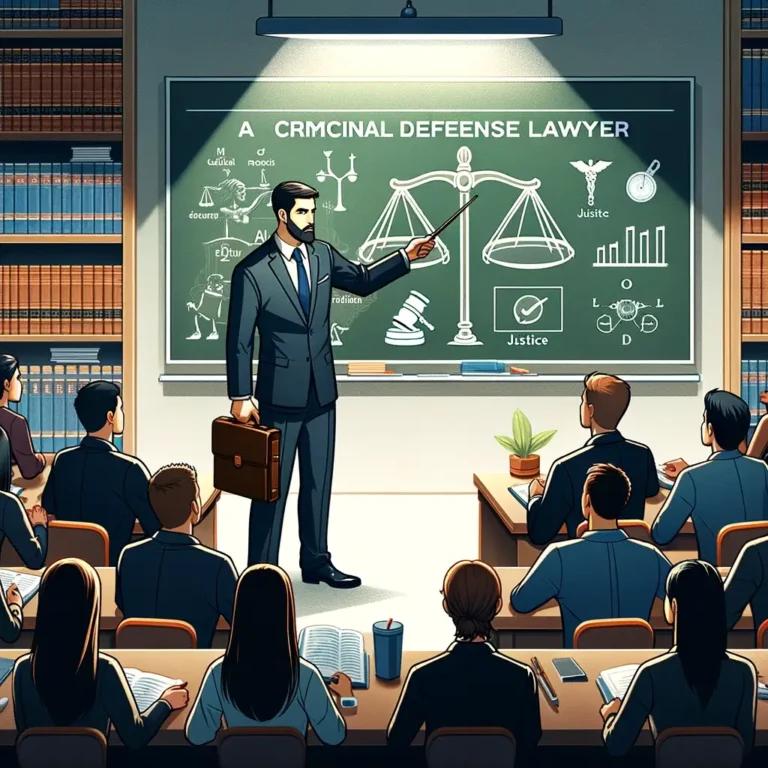In this article we have discussed Role of Legal Representation for Families Affected by Murder
Introduction to Legal Representation in Murder Cases
When a family is impacted by the tragedy of a murder, the ensuing legal processes can be overwhelming and complex. Legal representation plays a pivotal role in navigating these challenges. This article explores the significance of legal counsel for families affected by murder, highlighting the various aspects of the legal system and the benefits of having a knowledgeable advocate.
Understanding the Legal System
- Explanation of Legal Procedures: Legal representation provides families with a clear understanding of the legal procedures involved in murder cases. Lawyers explain the stages of the criminal justice system, including investigations, arrests, arraignments, trials, and appeals, helping families anticipate what to expect at each step.
- Clarification of Legal Rights: Lawyers ensure that families understand their legal rights as victims or survivors of murder. They explain rights such as the right to be informed about case developments, the right to participate in legal proceedings, and the right to seek compensation or restitution for losses incurred.
- Interpretation of Legal Documents: Legal representation assists families in interpreting legal documents, such as court filings, subpoenas, and evidentiary reports. Lawyers help families comprehend the significance of these documents and explain their implications for the case’s progression and outcome.
- Guidance on Legal Terminology: Lawyers demystify legal terminology for families, translating complex legal jargon into language that is accessible and understandable. They ensure that families are informed about the meaning of legal terms and concepts relevant to the murder case.
- Education about Legal Strategies: Legal representation educates families about legal strategies employed in murder cases, including defense tactics, evidentiary arguments, and courtroom procedures. Lawyers discuss potential legal avenues for pursuing justice and advocate for the best interests of the families throughout the legal proceedings.
- Support in Legal Decision-Making: Lawyers support families in making informed legal decisions that align with their goals and preferences. They provide guidance on critical decisions, such as whether to pursue criminal charges, participate in plea negotiations, or seek civil remedies through wrongful death lawsuits.
- Advisory Services for Courtroom Participation: Legal representation advises families on their participation in courtroom proceedings, including witness testimony, victim impact statements, and interactions with prosecutors, defense attorneys, judges, and juries. Lawyers prepare families for courtroom appearances, helping them convey their experiences and perspectives effectively.
Role of Legal Representation for Families Affected by Murder
Navigating the Court Processes
- Explaining Legal Procedures: Legal counsel explains the court procedures involved in murder cases in clear and understandable terms. Lawyers walk families through each stage of the legal process, including pre-trial hearings, jury selection, trial proceedings, and sentencing, helping them understand what to expect at every step.
- Providing Timely Updates: Legal counsel keeps families informed about the progress of their case, providing timely updates on court dates, hearings, and significant developments. Lawyers ensure that families are aware of key milestones in the legal proceedings and are prepared for upcoming court appearances.
- Preparing for Court Appearances: Legal counsel prepares families for court appearances, offering guidance on courtroom etiquette, dress code, and behavior expectations. Lawyers conduct mock trial rehearsals with families, helping them practice their testimony and responses to potential questions from prosecutors, defense attorneys, and judges.
- Assisting with Legal Documentation: Legal counsel assists families with preparing and reviewing legal documentation related to the case, such as victim impact statements, affidavits, and court filings. Lawyers ensure that families understand the content and implications of these documents and help them complete required paperwork accurately and comprehensively.
- Facilitating Communication with Legal Stakeholders: Legal counsel serves as a liaison between families and other legal stakeholders involved in the case, including prosecutors, defense attorneys, judges, and court personnel. Lawyers facilitate communication, relay messages, and address families’ concerns and inquiries on their behalf.
- Addressing Legal Challenges and Obstacles: Legal counsel anticipates and addresses potential legal challenges and obstacles that may arise during the court processes. Lawyers develop strategic plans and contingency measures to overcome hurdles, such as evidentiary disputes, witness credibility issues, and procedural complexities.
- Advocating for Victims’ Rights: Legal counsel advocates for the rights of victims and their families within the legal system, ensuring that their voices are heard and their interests are protected. Lawyers assertively represent families’ interests in court proceedings, advocating for fair treatment, access to justice, and accountability for the perpetrators of the murder.
- Providing Emotional Support: In addition to guiding families through the court processes, legal counsel provides emotional support and reassurance throughout the legal proceedings. Lawyers offer encouragement, empathy, and practical assistance to help families cope with the emotional challenges and stresses of participating in the criminal justice system.
Ensuring Justice and Fairness
- Presumption of Innocence: Legal counsel upholds the principle of “innocent until proven guilty” for the accused. Lawyers advocate for the rights of the accused to receive a fair trial, challenging any presumptions of guilt and ensuring that the burden of proof lies with the prosecution to establish guilt beyond a reasonable doubt.
- Due Process Protections: Legal counsel safeguards the due process rights of both the accused and the victims’ families. Lawyers ensure that legal procedures are followed meticulously, evidence is obtained lawfully, and constitutional protections are upheld throughout the investigation, trial, and sentencing phases.
- Access to Legal Representation: Legal counsel ensures that both the accused and the victims’ families have access to competent legal representation. Lawyers advocate for the provision of adequate defense counsel for the accused and offer support and guidance to victims’ families in navigating the legal process.
- Fair Trial Advocacy: Legal counsel advocates for a fair and impartial trial for all parties involved. Lawyers challenge any attempts to prejudice the jury or manipulate the judicial process, ensuring that the trial proceeds with integrity, transparency, and adherence to established legal standards.
- Protection of Victims’ Rights: Legal counsel prioritizes the rights and interests of the victims’ families, advocating for their voices to be heard and their experiences to be respected within the legal system. Lawyers ensure that victims’ families are treated with dignity, compassion, and sensitivity throughout the legal proceedings.
- Evidence Evaluation and Presentation: Legal counsel critically evaluates the evidence presented by the prosecution, scrutinizing its reliability, credibility, and relevance to the case. Lawyers present counterarguments and evidence on behalf of the accused or the victims’ families to ensure a balanced and comprehensive assessment of the facts.
- Mitigation and Restorative Justice: Legal counsel explores opportunities for mitigation and restorative justice, seeking alternatives to punitive measures that prioritize rehabilitation, reconciliation, and healing for all parties affected by the murder. Lawyers advocate for solutions that address the underlying causes of violence and promote accountability while minimizing harm and promoting restoration.
- Appeals and Post-Conviction Relief: Legal counsel continues to advocate for justice and fairness through appeals and post-conviction relief proceedings. Lawyers challenge erroneous convictions, procedural errors, and miscarriages of justice, seeking to rectify injustices and secure fair outcomes for their clients and the victims’ families.
Assistance with Compensation Claims
- Evaluation of Losses: Legal counsel helps victims’ families assess the full extent of their losses and damages resulting from the murder. Lawyers work closely with families to identify economic and non-economic losses, including medical expenses, funeral costs, loss of income, emotional trauma, and loss of companionship.
- Identification of Compensation Avenues: Legal representation identifies potential avenues for seeking compensation, including victim compensation funds, civil lawsuits, insurance claims, and restitution orders imposed as part of the criminal sentencing process. Lawyers explore all available options to maximize the recovery of compensation for victims’ families.
- Legal Documentation and Filing: Legal counsel assists victims’ families in preparing and filing the necessary legal documentation to initiate compensation claims. Lawyers ensure that all required forms, applications, and supporting documentation are completed accurately and submitted within statutory deadlines.
- Negotiation with Insurance Companies: Legal representation negotiates with insurance companies on behalf of victims’ families to secure fair and adequate compensation for their losses. Lawyers advocate for the payment of insurance benefits, coverage of medical expenses, reimbursement of funeral costs, and other compensable damages.
- Civil Lawsuits for Wrongful Death: In cases where the murder was the result of negligence, recklessness, or intentional wrongdoing, legal counsel helps victims’ families pursue civil lawsuits for wrongful death. Lawyers represent families in court proceedings, seeking monetary damages from liable parties for their role in causing the murder.
- Advocacy for Victim Compensation Funds: Legal representation advocates for victims’ families to receive compensation from state or federal victim compensation funds established to assist crime victims. Lawyers guide families through the application process, advocate for the maximum allowable compensation, and ensure that their rights as crime victims are upheld.
- Representation in Restitution Proceedings: Legal counsel represents victims’ families in restitution proceedings as part of the criminal sentencing process. Lawyers advocate for the imposition of restitution orders against convicted offenders, seeking reimbursement for victims’ financial losses and expenses related to the murder.
- Appeals and Enforcement Actions: In cases where compensation claims are disputed or denied, legal representation pursues appeals and enforcement actions to challenge adverse decisions and compel compliance with court orders. Lawyers tenaciously advocate for victims’ rights to receive just and timely compensation for their losses.
Advocacy and Representation
- Asserting Victims’ Rights: Legal counsel advocates for the rights of victims’ families within the criminal justice system, ensuring they are treated with dignity, respect, and sensitivity. Lawyers assertively advocate for victims’ rights to be informed, heard, and considered at every stage of the legal proceedings.
- Voicing Victims’ Perspectives: Legal representation amplifies victims’ voices and perspectives within the courtroom, ensuring that their experiences, concerns, and preferences are conveyed to prosecutors, judges, and juries. Lawyers advocate for victims’ families to have meaningful input in decisions affecting the case’s outcome.
- Seeking Accountability and Justice: Legal counsel pursues accountability and justice on behalf of victims’ families by advocating for thorough investigations, vigorous prosecutions, and appropriate sentencing for convicted offenders. Lawyers work tirelessly to hold perpetrators accountable for their actions and secure fair and just outcomes for victims’ families.
- Navigating Legal Complexities: Legal representation navigates the complexities of the legal system on behalf of victims’ families, providing guidance, support, and expertise throughout the legal process. Lawyers explain legal procedures, clarify rights and options, and help families make informed decisions about their case.
- Championing Victim-Centered Solutions: Legal counsel champions victim-centered solutions that prioritize the needs, concerns, and well-being of victims’ families. Lawyers advocate for restorative justice approaches that promote healing, reconciliation, and closure for all parties affected by the murder.
- Combatting Victim Blaming and Stereotyping: Legal representation challenges victim blaming and stereotypes that may undermine victims’ credibility, integrity, or rights within the legal system. Lawyers confront biases, prejudices, and misconceptions to ensure that victims’ families are treated fairly and respectfully by all parties involved.
- Supporting Victims’ Empowerment: Legal counsel empowers victims’ families to actively participate in the legal process, providing them with the information, resources, and support they need to make informed decisions and assert their rights effectively. Lawyers foster a sense of agency and empowerment among victims’ families, enabling them to navigate the complexities of the legal system with confidence and resilience.
- Promoting Systemic Reform and Advocacy Initiatives: Legal representation engages in systemic reform efforts and advocacy initiatives aimed at improving the legal system’s response to victims of murder and their families. Lawyers advocate for policy changes, legislative reforms, and community-based interventions that enhance victims’ rights, support services, and access to justice.
Importance of Specialized Legal Representation
- Expertise in Indian Criminal Law: Specialized legal representation in murder cases brings in-depth knowledge of Indian criminal law, including provisions of the Indian Penal Code (IPC), Criminal Procedure Code (CrPC), and relevant case precedents. Lawyers specializing in murder cases are well-versed in the nuances of these laws, enabling them to craft effective defense or prosecution strategies tailored to Indian legal standards.
- Navigating Indian Judicial System: Murder cases in India involve navigating the intricacies of the Indian judicial system, including trial procedures, evidentiary rules, and courtroom practices specific to Indian courts. Specialized legal representation understands these procedures thoroughly, ensuring that clients receive competent and strategic representation throughout the legal process.
- Access to Specialized Resources and Expertise: Specialized legal representation in India has access to specialized resources and expertise necessary for building a strong case. This includes forensic experts, investigators, and legal researchers who can provide valuable insights and assistance in gathering evidence, preparing arguments, and presenting the case effectively in Indian courts.
- Understanding of Indian Legal Culture and Context: Lawyers specializing in murder cases in India possess a deep understanding of the country’s legal culture, societal norms, and judicial precedents. This contextual understanding allows them to navigate cultural sensitivities, address local nuances, and communicate effectively with judges, juries, and other stakeholders within the Indian legal system.
- Protection of Legal Rights under Indian Constitution: Specialized legal representation is committed to protecting the legal rights guaranteed under the Indian Constitution, including the right to a fair trial, the presumption of innocence, and due process. Lawyers ensure that their clients’ constitutional rights are upheld and that they receive fair treatment under Indian law.
- Advocacy for Justice and Fairness in Indian Courts: Lawyers specializing in murder cases advocate for justice and fairness within the Indian legal system, seeking to uphold the rule of law and ensure accountability for perpetrators of crimes. They work to uncover the truth, present compelling evidence, and advocate for the interests of their clients while adhering to the principles of justice and fairness enshrined in Indian law.
- Compassionate and Ethical Representation: Specialized legal representation in India offers compassionate and ethical representation to clients and their families, recognizing the emotional toll and societal stigma associated with murder cases. Lawyers provide empathetic support, guidance, and legal advice to clients while upholding the highest standards of professional ethics and integrity.
The Benefit of a Dedicated Legal Team
Having a dedicated legal team ensures that all aspects of the case are thoroughly examined and addressed. This includes investigating the circumstances of the murder, preparing for court appearances, and handling any post-trial matters as well as Emotional Support of Counsel.
Emotional Support of counsel
- Compassionate Listening: Legal counsel serves as a compassionate listener, offering families a safe space to express their emotions, concerns, and fears without judgment. Lawyers listen attentively to the families’ experiences, providing empathy and validation for their feelings of grief, anger, sadness, and confusion.
- Validation of Feelings: Legal counsel validates families’ feelings of loss, trauma, and injustice, acknowledging the gravity of their emotional suffering. Lawyers reassure families that their emotions are normal and understandable given the circumstances of their loved one’s murder.
- Empathetic Understanding: Legal counsel demonstrates empathetic understanding of the unique challenges and struggles faced by families affected by murder. Lawyers put themselves in the families’ shoes, empathizing with their pain and demonstrating genuine care and concern for their well-being.
- Empowerment through Information: Legal counsel empowers families by providing them with accurate information about the legal process, their rights, and available legal options. By educating families about their legal rights and responsibilities, lawyers help alleviate feelings of helplessness and empower families to make informed decisions about their case.
- Crisis Intervention: Legal counsel offers crisis intervention services to families in moments of acute distress or emotional upheaval. Lawyers are available to provide immediate support and assistance when families experience heightened emotional reactions or traumatic triggers related to their loved one’s murder.
- Referral to Support Services: Legal counsel connects families with additional support services, such as grief counseling, therapy, support groups, and victim advocacy organizations. Lawyers collaborate with mental health professionals and community resources to ensure that families have access to comprehensive emotional support and mental health care.
- Advocacy for Emotional Needs: Legal counsel advocates for families’ emotional needs within the legal system, ensuring that their emotional well-being is prioritized and respected throughout the legal process. Lawyers communicate families’ emotional concerns and preferences to prosecutors, judges, and other relevant stakeholders, advocating for accommodations and support as needed.
- Long-Term Support and Follow-Up: Legal counsel provides ongoing emotional support and follow-up care to families beyond the immediate aftermath of the murder. Lawyers maintain regular communication with families, checking in on their emotional well-being, providing updates on the case’s progress, and offering continued support and guidance as needed.
Conclusion: The Crucial Role of Legal Representation
Legal representation is vital for families affected by murder. It provides necessary guidance, emotional support, and advocacy, ensuring that the family’s rights are protected and their voices heard throughout the legal process. Choosing the right legal team with expertise in murder cases can make a significant difference in the outcome and the family’s ability to cope with their loss.
FAQ on Legal Representation for Families Affected by Murder
1. Why is legal representation important for families affected by murder?
Answer: Legal representation is crucial for guiding families through the complex legal process, ensuring their rights are protected, and advocating for their interests and justice in court.
2. Can a family hire a lawyer if the state appoints a prosecutor in a murder case?
Answer: Yes, a family can hire their own lawyer to represent their interests, separate from the state-appointed prosecutor whose primary role is to represent the state’s interests in prosecuting the accused.
3. What is the role of a family’s lawyer in a murder trial?
Answer: The family’s lawyer provides guidance, ensures the family’s perspective is considered, assists with compensation claims, and provides emotional support throughout the trial.
4. How can legal representation help in dealing with media during a murder case?
Answer: Legal representation can manage media interactions, ensuring the family’s privacy is respected and public statements do not adversely affect the case.
5. Are families entitled to compensation in murder cases?
Answer: Families may be entitled to compensation for damages, and a lawyer can help navigate these claims and advocate for fair restitution.
6. Can legal representation help in understanding the criminal justice system?
Answer: Yes, lawyers explain the legal process, terminology, and proceedings, making the system more understandable for families.
7. How does a lawyer support families emotionally during a murder trial?
Answer: Lawyers provide emotional support, helping families cope with the stress and grief associated with the trial.
8. What kind of experience should a lawyer have for representing families in murder cases?
Answer: A lawyer should have experience in criminal law, specifically in murder cases, and understand the complexities involved in such trials.
9. Can a family’s lawyer question witnesses during a trial?
Answer: While the prosecutor primarily questions witnesses, the family’s lawyer can suggest lines of inquiry and ensure important questions are addressed.
10. How does legal representation help in the investigation phase of a murder?
Answer: Lawyers can work with private investigators or liaise with law enforcement to ensure a thorough investigation is conducted.
11. Is it expensive to hire a lawyer for a murder case?
Answer: Costs vary depending on the case complexity and the lawyer’s expertise. Some lawyers may work pro bono or on a contingency fee basis in certain circumstances.
12. Can a family’s lawyer appeal a murder case verdict?
Answer: If the family believes justice was not served, their lawyer can assist in filing an appeal against the verdict.
13. How does legal representation interact with the prosecutor?
Answer: The family’s lawyer coordinates with the prosecutor to share information, ensure the family’s interests are considered, and advocate for the victim’s justice.
14. What if a family cannot afford legal representation in a murder case?
Answer: Families may seek legal aid services, pro bono lawyers, or community legal clinics for assistance in such cases.
15. Can legal representation help in getting a restraining order against the accused?
Answer: Yes, lawyers can assist in filing for restraining orders for the family’s safety and peace of mind.
16. How long does a family’s lawyer stay involved in a murder case?
Answer: A lawyer typically stays involved throughout the trial and any subsequent appeals or related legal matters.
17. Can a lawyer ensure media doesn’t intrude on a family’s privacy?
Answer: While a lawyer can request media respect privacy, they cannot legally enforce it, but they can guide the family in handling media attention.
18. What if the family disagrees with the prosecutor’s approach?
Answer: The family’s lawyer can voice concerns and advocate for a strategy that aligns more closely with the family’s wishes.
19. Can a family sue for wrongful death in a murder case?
Answer: Yes, alongside criminal proceedings, families can pursue a civil lawsuit for wrongful death with the help of their lawyer.
20. How does a lawyer prepare a family for a murder trial?
Answer: Lawyers prepare families by explaining the process, setting expectations, and providing guidance on courtroom behavior and procedures.
21. What is victim advocacy in the context of murder cases?
Answer: Victim advocacy involves supporting and representing the interests of the murder victim’s family, ensuring their rights and needs are addressed.
22. Can a family’s lawyer negotiate plea deals?
Answer: Plea deals are typically negotiated by the prosecutor, but the family’s lawyer can express the family’s perspective on any proposed deal.
23. How important is the lawyer’s familiarity with local laws in a murder case?
Answer: It’s crucial, as local laws can vary significantly, and familiarity ensures the lawyer navigates the legal system effectively.
24. Can a lawyer help in cases of unsolved murders?
Answer: Yes, they can assist in pushing for continued investigation and liaise with law enforcement on the family’s behalf.
25. How does a lawyer assist in cases of murder with no body found?
Answer: Lawyers can help navigate the legal complexities of such cases, including issues related to evidence and proving the crime without a body.
26. What role does a lawyer play in inquests or coroner’s courts in murder cases?
Answer: Lawyers can represent the family’s interests, question witnesses, and seek to uncover the truth about the circumstances of the death.
27. Can a family change lawyers if they are unsatisfied with their representation?
Answer: Yes, families have the right to change their legal representation if they feel their current lawyer is not adequately meeting their needs.
28. How does a lawyer handle cases involving minors?
Answer: Lawyers in cases involving minors take extra care to protect their rights and handle the proceedings sensitively, considering the emotional impact on young individuals.
29. What if there are conflicts of interest in a murder case?
Answer: The lawyer must disclose any conflicts of interest and, if necessary, recuse themselves from the case to uphold ethical standards.
30. How can families find a reputable lawyer for a murder case?
Answer: Families can seek referrals, research lawyers with experience in murder cases, and consult legal directories or bar associations for reputable attorneys.
















